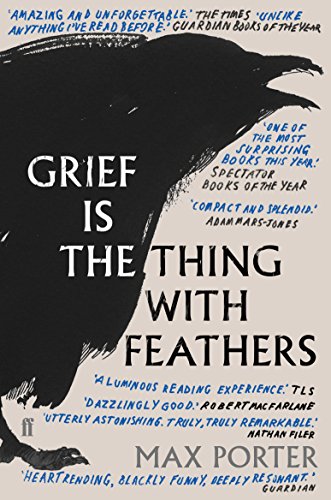In all honesty, this is probably due for a reread because it's been a while, but I still wanted to give this a shoutout.
Also, I lied, this is not really a poetry collection. But it deserves our attention nonetheless.
If the title sounds familiar, it is because it's a reference to Dickinson's 314 poem about hope. Comparing grief to hope is apt, for the book is about the aftermath of Porter's wife dying and leaving him in charge of two young children, and the process of recomposing life after such a terrible loss. Inspired by Ted Hughes' poem "Crow" (sadly we did not get to Plath, and therefore not Hughes either, so I'll have to tackle them later on), the crow of this book is both a real and symbolic. Cruel but not evil, Crow prompts the necessary grief in the family, confronts and comforts them, acts as a cleanser so the Porters can mourn and feel, and, eventually, begin to move on. In this way, proper grief is as much about hope as it is about sadness: you sink into it with the knowledge that it shall pass, and you shall be stronger for having endured it.
Technically speaking, this is a novel in verse (it was nominated to the Goldsmith's prize, after all), but it's so fragmented that calling it a poetry collection is not far off either. Although it is very intertextual and can come off as obscure and plain weird at times, I'd still recommend this as a good place to get into poetry (if you'd like, you can pretend it's not poetry at all!), as the narrative thread is clear and the emotions are raw and universal. It remains to be determined by my reread whether all of this translates into poetic skill, as I did read it almost two years ago (and my knowledge of formal aspects of poetry has increased considerably since then), but for what it's worth, I really connected with this when I first read it.
Give it a shot, let me know what you think!
Give it a shot, let me know what you think!


No comments
Post a Comment